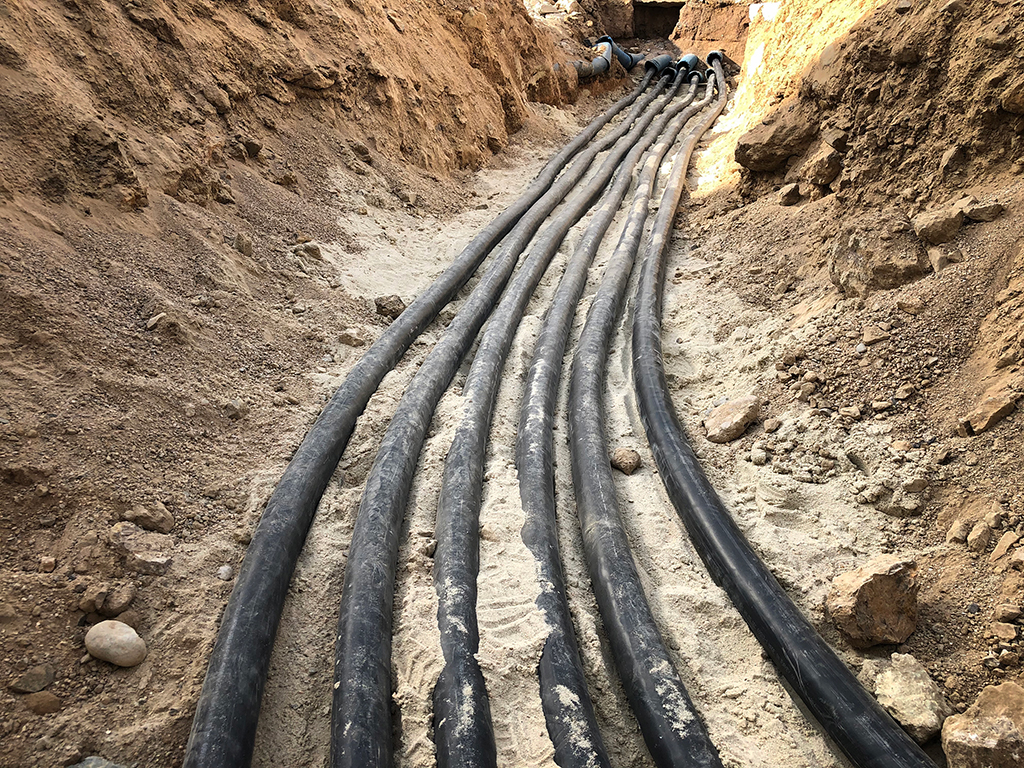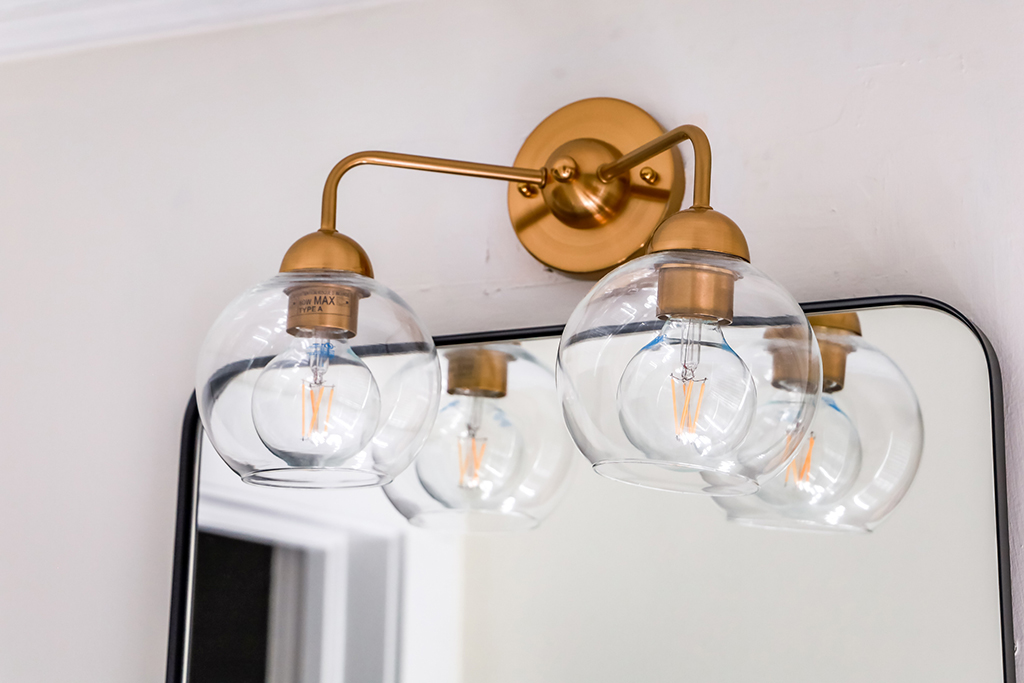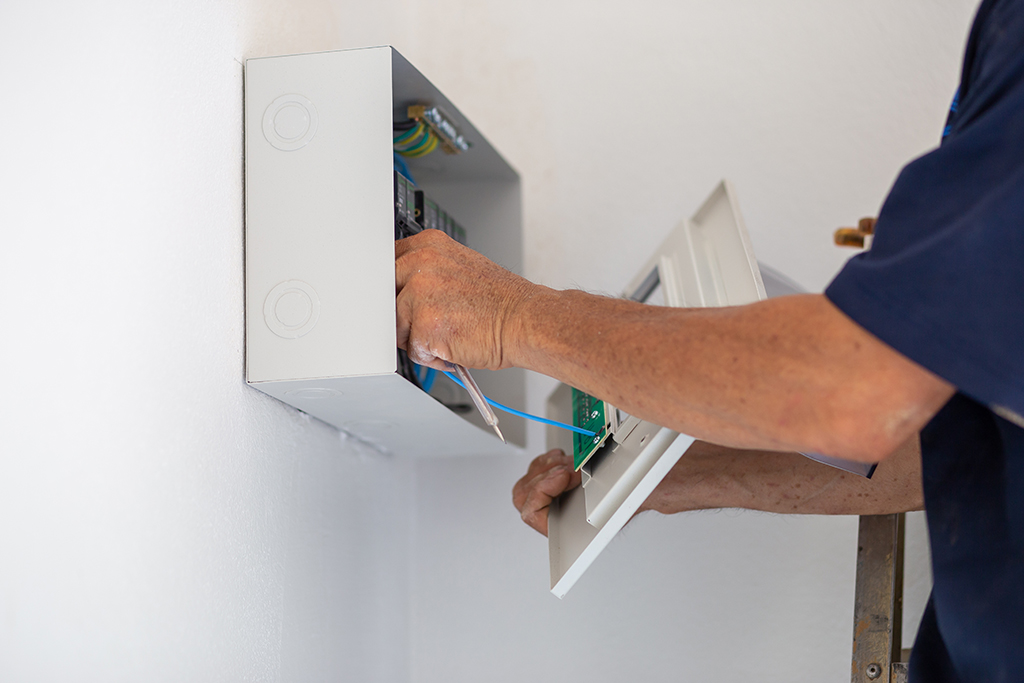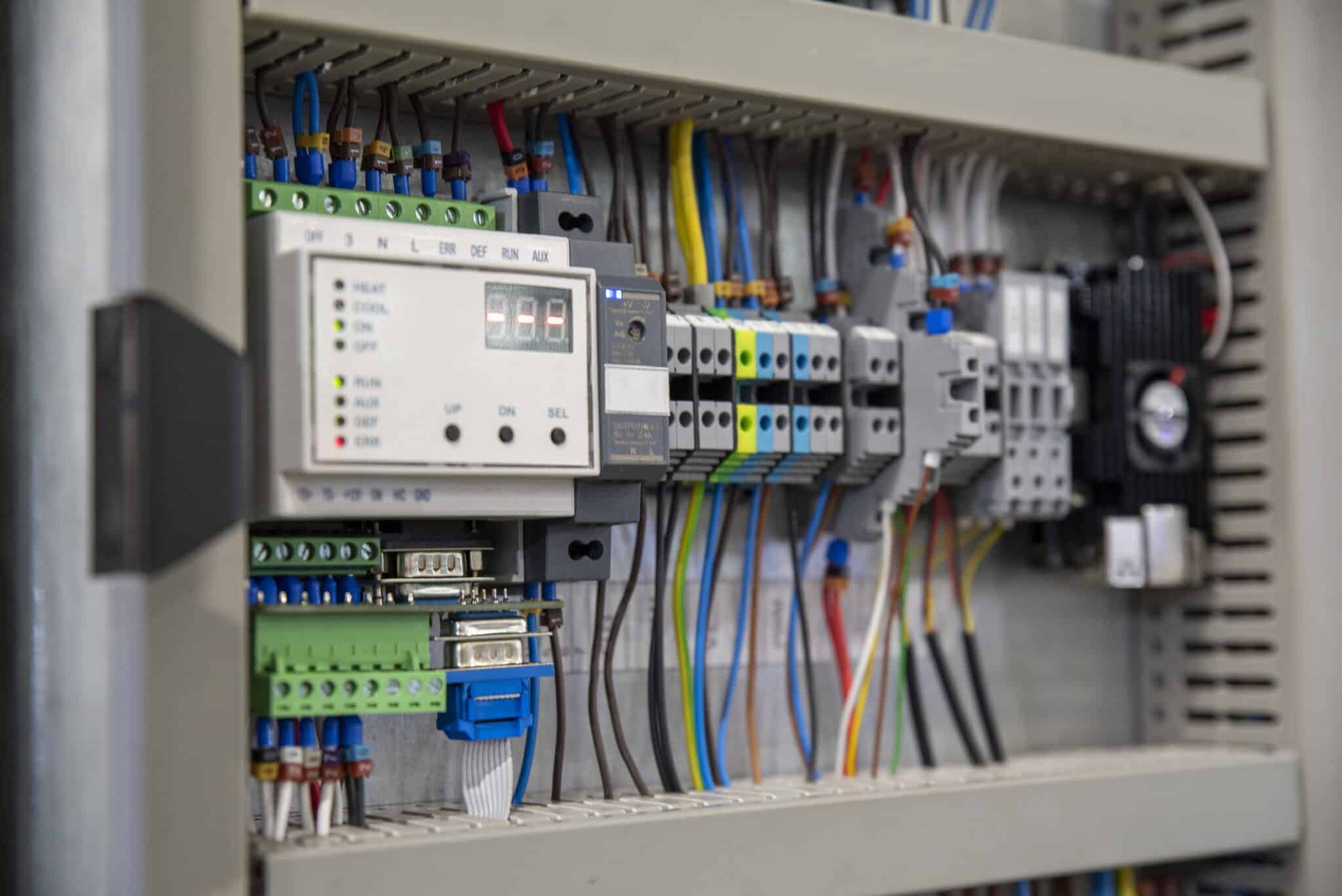
5 Reasons To Have An Electrician Upgrade The Electrical Panel
According to the US Fire Administration, 353,500 residential fires occurred within the United States, causing 2,840 deaths and 11 400 injuries. In all these, 24,200 residential fires resulted from electrical malfunctions and resulted in 295 deaths and 900 injuries. The main reasons for such fires are old wiring, outdated circuits, and overloading of the circuit panels. If you have no plans to have an electrician inspect your home’s electrical system, the statistics above should compel you. The licensed technician will confirm whether you need electrical panel upgrades. But why should you upgrade the electrical panel?
You Get Intermittent or “Mini” Blackouts at Your Home
Have you realized your home is experiencing mini blackouts regularly? If the “outages” only happen in your home and don’t seem to happen at your neighbors, there’s a likelihood your circuit breaker is faulty. Never ignore a faulty circuit breaker, which could result in residential fires. The circuit breaker is a protective electrical component, and if it cannot do its job properly, such problems arise.
It protects your home and appliances by cutting off electrical power whenever electrical overloads arise. The overloads happen when the main panel continuously draws more electricity than the circuit is designed to handle. This normally occurs when you plug in or simultaneously run many high-voltage appliances into a circuit. Whenever this happens, the circuit breaker trips, opening the circuit to prevent any further flow of electric current.
Your circuit breaker must trip to prevent the panel from overloading and damaging your appliances and electrical system. However, if the breaker keeps tripping, it can no longer keep up with the energy demands of your home’s appliances. In other words, it is outdated, too old, or has a lower rating than your appliances and should be upgraded. Hence, you should enlist an electrical technician to replace it with a more modern breaker that can keep up.
You Have Heard Crackling or Buzzing Sounds From Your Electrical Panel
Do you hear cracking or buzzing sounds whenever you pass near the panel? That indicates there is short-circuiting in your electrical system. Those sounds you are hearing are live electricity. However, short-circuiting also can result in breaker trips. Short-circuiting arises whenever the “hot” or active wire comes into contact with another hot wire. A short circuit can also arise when the active wire touches the neutral wire. Regardless, the contact between the two wires results in a massive flow of current which causes those buzzing or crackling sounds. Eventually, this makes the breakers trip. However, you also might notice burn marks on surfaces such as breaker switches or wall outlets. Another common side-effect of a shorted circuit is blown fuses. If you notice this, enlist an electrician to inspect your electrical panel. However, they will most likely recommend that you replace it to avert risks caused by short-circuiting.
Presence of a Smoky Smell From the Panel
When the circuit breakers in your panel trip, check for a smoky smell before resetting it. Are there actual or visible burn spots or marks on the switches? If there are, that is a surefire sign of a current overflow, a hazardous phenomenon. The burnt smell is normally a sign of overheated insulation or wires. Regardless, either scenario is dangerous; it’s best to contact an electrical services provider for a further inspection. Although the power box could still work, it won’t be long if it keeps shutting down. Besides, if it fails, the circuit breakers might not shut down. Since the circuit breaker is a protective fixture, this is the last thing you want. Hence, it might be about time you replace it.
If the Label on Your Electrical Panel Indicates FPE
Between the 50s and 80s, FPE panels were common in many US homes. However, the Consumer Product Safety Commission began investigating FPW in 1980. Unfortunately, the Commission found that the FPE breakers failed the calibration test requirements. Additionally, the Commission found that one-third of the panels had defective circuit breakers.
Due to these problems, the Old FPE electrical panels pose a serious fire hazard and safety threat. It is estimated that defective products could be behind over 2,800 electrical fires in the US annually. Unfortunately, many defective FPE panels remain in some old US homes. Those are many homes considering that about 50% of the owner-occupied homes in the US were built before the 80s.
Do you live in one of the old houses? It could still have an FPE unit installed. It is best to enlist an electrician for an inspection to see the manufacturer of your electrical panel. If FPE manufactures it, the professional will recommend an immediate replacement to ensure you remain safer. This is an instance of not all gold.
You Have a ZINSCO Electrical Panel
Does your electrical panel indicate “ZINSCO-Sylvania” or simply “ZINSCO?” Then you should also get it checked by an electrical technician. Studies have shown that over one-quarter of these electrical panels are defective. Most of the “ZINSCO-Sylvania” or “ZINSCO” panels’ problems are because of delayed electrical overload response. This means they do not “trip” immediately. They sense a current overload. Rather, they carry the excessive load for a longer period. Unfortunately, the overload may overheat the electrical network at your home, given enough time.
Overheating can cause electrical arcing, besides overheating your electrical wires. When an electrical current deviates from its intended direction or course, it results in an arc. An arc flash that resembles a huge ball of light and heat energy can then be produced due to this transition. That alone should prompt you to think about getting your panel safety inspected. This way, an electrician can verify whether your ZINSCO electrical panel is defective or working as intended. If defective, the professional will recommend a replacement.
We Can Help With Your Panel Upgrades
Do you need electrical panel upgrades? Contact our friendly, seasoned electrical technicians at Buffalo Electric to book an appointment.
See our most recent blog on this topic here.
Find out our service area here.
Photo By rizvan3d at Shutterstock

Reasons Electricians May Recommend Using Underground Electrical Cables On Your Property
Electricity is an essential resource in our daily lives. We rely on electrical systems for lighting, heating, cooking, or running devices to keep our homes and businesses functioning. And when installing electrical cables, there are two primary options – overhead lines and underground lines. While overhead lines have been popular, many electricians recommend underground cables for various reasons. In this blog post, we’ll examine why electrical contractors may recommend using underground electrical cables for your property.
Safer
Electricians may recommend using underground electrical cables on your property for various reasons. However, one of the most compelling is safety. By burying electrical cables, the risk of accidental contact with the live wires is greatly reduced, potentially preventing serious injury or even death. Additionally, underground lines are less susceptible to damage from harsh weather conditions, such as high winds or ice storms. Finally, underground electrical cables are less likely to be interfered with by animals and pests, which can cause power outages and potential damage. So, if you have safety concerns, it’s probably a good idea to speak with your electrical contractor about using underground cables.
More Reliable
When it comes to electrical wiring for your property, the system’s reliability is crucial. That’s why many electricians recommend using underground electrical cables. This type of wiring has lower chances of being damaged by weather, animals, or accidental damage caused by people. Additionally, underground lines are more reliable because they are not subject to shorts caused by outside elements, such as moisture and dust. The result is a more reliable electrical system that can provide uninterrupted power for years. However, proper installation ensures that your underground electrical cables are reliable and safe. You don’t want to skimp on the installation, so hiring an experienced electrical contractor is important.
Less Visually Intrusive
Electricians may often recommend using underground electrical cables on your property due to their visual benefits. By opting for underground electrical cables, you can eliminate the unsightly appearance of overhead power lines while retaining the power supply to your home or business. This is especially useful if you live in a scenic area where unsightly power lines can detract from the natural beauty of your surroundings. With underground electrical cables, you can enjoy clear views, a more unobstructed skyline, and minimal visible impact, making it a popular option for homeowners and commercial property owners.
Long-term Cost Savings
While underground electrical cables come with higher installation costs than overhead lines, they are cost-effective in the long run. Underground lines require less maintenance and a longer lifespan, which means you’ll save money on repairs and replacements. Also, underground cables are less susceptible to damage caused by weather elements or human activities, reducing the risk of repair costs and downtime. This ensures you have a more reliable power supply, which means more value for your money in the long run. With proper installation and maintenance, underground electrical cables can provide reliable power for decades, offering significant cost savings.
Environmental Friendly
Moving your underground electrical cables can help reduce the environmental impact by eliminating the need to cut down trees or clear land to make way for overhead power lines. Overhead electrical cables also require frequent maintenance, like trimming trees and vegetation along the lines, which can disrupt the environment. Underground electrical cables, however, are less intrusive on the environment and require fewer maintenance activities. Additionally, underground lines reduce the risk of wildlife getting entangled in the wires, helping preserve the area’s natural balance. When it comes to the environment, underground lines are much more environmentally friendly than overhead ones.
Protection From Vandalism
Vandalism is a growing problem in many areas. While most vandals target public property, they sometimes focus on private homes. Power lines, particularly overhead lines, are a common target of vandalism. Vandals often cut or break these lines causing power outages, damage to the lines themselves, and a potential safety hazard. This makes overhead lines a much easier target as they are easily accessible.
Underground electrical cables, on the other hand, are much less vulnerable to vandalism. Underground lines are buried safely beneath the ground, making them much harder to access and less tempting to vandals. Vandals would require heavy-duty equipment to dig up the lines, making it much less likely for them to succeed. Therefore, while they may not eliminate vandalism, underground electrical cables offer greater protection than their overhead counterparts. Accessing them requires too much effort and resources, making them a less attractive option.
FAQs About Underground Electrical Cables
Do Underground Electrical Cables Require Special Installation?
Yes, underground electrical cables require specialized installation. They require more attention during installation to decrease the likelihood of corrosion, physical damage, and moisture ingress. These protective measures include proper coating and insulation, the right choice of grounding options, and careful placement of cables in the trench. Hiring qualified and experienced professionals to install and maintain underground electrical cables properly is important.
Are There Any Disadvantages To Using Underground Electrical Cables?
One potential disadvantage of underground electrical cables is that they can be more expensive to install than overhead lines. It can also be more difficult to access and repair them if they become damaged. However, the long-term benefits of safety and aesthetics often make underground lines a worthwhile investment.
Can Underground Electrical Cables Be Repaired Or Replaced?
Yes, repairing or replacing underground electrical cables is possible if they become damaged or outdated. This typically involves digging up the old cables and conduit, installing new ones, and restoring the ground surface. However, this can be a complex and costly process, depending on the damage’s extent and the lines’ location.
Contact Us For All Your Electrical Needs
Whether you’re looking to install new electrical cables or need help maintaining and troubleshooting existing ones, our team of experienced professionals at Buffalo Electric can help. Contact us today for more information about our services and how we can help you with all your electrical needs.
See our most recent blog on this topic here.
Photo By Philipp Berezhnoy at istock

The Basics of Electrician Repair and Maintenance
Electricity is an essential part of our everyday lives. It powers our homes, businesses, and everything in between. From our phones to our refrigerators, we rely on electricity to keep us connected and comfortable. However, with great power comes great responsibility, and when something goes wrong with our electrical systems, it can be a dangerous and costly problem. That’s where a reliable electrician comes in. Whether you’re dealing with a flickering light or a full-blown electrical emergency, a skilled professional can provide the expertise and service you need to keep your home or business safe and functioning properly. At Buffalo Electric, we pride ourselves on delivering top-notch electrical services and repairs to our customers, no matter how big or small the job. So if you’re in need of electrical help, don’t hesitate to give us a call.
The Importance of Electrical Services and Repair
There are many reasons why you might need to call for electrical services and repair. Perhaps your circuit breaker keeps tripping, or you’ve noticed that your lights flicker whenever you turn on an appliance. Maybe you’ve just moved into a new home and want to make sure your electrical system is safe and up to code.
Whatever the reason, it’s important to address any electrical issues as soon as possible. Not only can electrical problems be dangerous, but they can also lead to more extensive damage to your home or business. For example, an overloaded circuit could cause a fire, while a faulty electrical panel could lead to power outages.
That’s why it’s important to hire a professional for any electrical services and repairs you may need. Electricians are trained and experienced in working with electrical systems and can quickly diagnose and fix any issues that may arise.
Types of Electrical Services and Repair
When it comes to electricity, it’s always better to be safe than sorry, which is why it’s important to have a trusted professional on hand who can help with any electrical services or repairs you may need. Whether you’re a homeowner, business owner, or landlord, understanding these services can help you better maintain and care for your electrical systems. There are many types of electrical services and repairs that a professional can provide. Some of the most common include:
- Electrical panel upgrades: If your home or business has an outdated electrical panel, it may need to be upgraded to meet current safety standards and accommodate your power needs.
- Lighting installation: Whether you’re looking to add new lighting to your home or business or need to replace existing fixtures, a professional can help.
- Wiring and rewiring: If you’re experiencing electrical problems, it may be due to faulty wiring. A professional can inspect your wiring and make any necessary repairs or replacements.
- Generator installation: If you live in an area prone to power outages, a generator can be a lifesaver. A professional can install and maintain a generator to ensure that you have backup power when you need it.
- Electrical safety inspections: Regular electrical safety inspections can help prevent electrical fires and other hazards. A professional can inspect your electrical system and make any necessary repairs or upgrades to keep your home or business safe.
Choosing the Right Electrical Service
When it comes to choosing the right professional for your needs, there are several factors to consider. First and foremost, you want to ensure that the professional you hire is licensed and insured. This will give you peace of mind knowing that they have the proper training and experience to handle any job safely and effectively. Additionally, it’s important to choose a professional who offers a wide range of services, as this will allow you to rely on them for all your electrical needs. You may also want to look for a professional who offers 24/7 emergency services, so you can get help whenever you need it most. Lastly, don’t forget to read reviews and ask for referrals from friends and family. This will give you a better idea of the professional’s reputation and the quality of their work. By taking these factors into consideration, you can find a reliable professional who can help you keep your electrical systems in top shape. When it comes to electrical services and repairs, it’s important to choose the right professional for the job. Here are a few things to keep in mind when making your selection:
- Licensing and insurance: Make sure the professional you hire is licensed and insured. This will ensure that they have the necessary training and experience to handle your electrical needs and protect you in case of any accidents.
- Experience: Look for a professional with experience working on similar projects to yours. This will ensure that they have the knowledge and skills to complete your project successfully.
- Reputation: Check online reviews and ask for references to get a sense of an electrician‘s reputation. A good professional will have a track record of satisfied customers.
- Communication: Make sure the professional you hire communicates clearly and is responsive to your questions and concerns.
For safe, reliable, and professional electrical services and repair, schedule an appointment with Buffalo Electric today!
Electricity is an essential part of our daily lives, and having a reliable electrician on hand is crucial for maintaining the safety and functionality of our electrical systems. From routine maintenance to emergency repairs, a skilled professional can provide a wide range of services to keep your home or business running smoothly. At Buffalo Electric, we’re proud to offer our customers top-notch electrical services and repairs, and we’re always here to help when you need us. Don’t hesitate to give us a call if you’re in need of electrical assistance. A little prevention can go a long way when it comes to electrical issues, so don’t wait until it’s too late to address a problem. Contact us to schedule an appointment and ensure the safety and efficiency of your electrical systems.
See our most recent blog on this topic here.
Photo By anabaraulia at Shutterstock

An Electrician Explains Common Light Fixtures Issues That Homeowners Should Know About
Are you tired of coping with flickering lights or burnt-out bulbs at home? Light fixtures are an essential part of residential premises. They provide both functionality and style. Some of the common light fixtures found in most homes include chandeliers, pendant lights, and recessed lighting.
However, after some time, they can develop problems affecting their functionality. Keep reading to understand common light fixture issues and when to call in an electrician to ensure the safety of your property and loved ones.
Flickering Bulbs
Flickering or dimming bulbs is a frequent problem in most households. Although it might appear like a minor inconvenience, it could signify a more significant electrical problem. If your light bulbs are flickering or seem dim, the fixture’s wiring could be a problem, or the switch may be faulty.
Regarding wiring, there could be several issues at play. For instance, the wiring could be damaged or worn out, or there could be a loose connection between the wires. Sometimes, the wiring may not be well-suited to the bulb you’re using, resulting in a mismatch that causes the flickering or dimming.
Flickering or dimming bulbs can also be due to an overloaded circuit or an electrical surge. If you detect signs such as a burning smell or sparks, it’s essential to turn off the power immediately. Then you can call an electrical expert right away to diagnose and fix the problem to ensure the safety of your home and family.
Outdated Fixtures
Outdated light fixtures can be ineffective and cause various issues in your home. Older fixtures may consume more electricity than newer models and yield less light, causing higher energy bills and poorer lighting quality. In addition, outdated fixtures may not be as safe as modern fixtures, especially if they have worn or faulty wiring.
Upgrading to newer, more energy-efficient light fixtures can provide various benefits. To begin with, they use less electricity and can significantly reduce your energy bills over time.
Secondly, newer models often have a longer lifespan, meaning you’ll save money on replacement costs in the long run. According to Energy Star, unlike traditional models, newer fixture models use 90 percent less energy.
Besides, newer models come in various styles and designs, so you can choose a light fixture that complements your home’s aesthetic while providing optimal lighting.
In addition, you can choose state-of-the-art fixtures with dimmer switches, motion sensors, or smart home integration, providing added convenience and control over your home’s lighting.
When upgrading your light fixtures, it’s fundamental to consider factors such as the size of the room, the desired level of lighting, and your budget. So it is crucial to consult an electrician to assess your home’s electrical system and recommend the best fixtures to meet your needs.
Overloaded Circuit
An overloaded circuit occurs when too many electrical devices or fixtures are connected to a single circuit causing it to draw more current than it can safely handle. Sometimes, it can result in frequent circuit breaker tripping, flickering lights, and even electrical fires.
If you have multiple light fixtures on the same circuit, you should examine the circuit capacity to ensure you are overloading. You can do this by checking the circuit breaker’s rating and comparing it to the combined wattage of all the light fixtures on the circuit.
If the circuit is overloaded, you can have a technician install an additional wiring circuit for your lighting needs. This will allow you to distribute the load across multiple electrical circuits. It will also reduce the risk of overloading and improve your electrical system’s overall safety and efficiency.
Humming
Another common issue that homeowners may encounter with their light fixtures is humming. A humming sound can occur when the light fixture is turned on, and several factors, including bulbs or wiring, can cause it.
If the humming sound is from the light fixture, it may be due to its design or construction. Some vibrate and produce a humming sound when the current passes through them.
In this case, there may not be much that can be done to eliminate the humming sound, and you may need to consider getting a professional to replace the fixture.
Bulbs Burning Out Early
Bulbs burning out early is another common problem occurring due to light fixtures. Using bulbs with a wattage higher than the fixture rating can cause the bulbs to burn out quickly.
On the other hand, bulbs with a wattage lower than the fixture rating can also cause problems, such as dimming or flickering. It’s essential to use light bulbs with wattage ratings that match the fixture to avoid premature burnouts.
If you’re using bulbs at the correct wattage and they’re still burning out quickly, there may be a problem with the fixture itself. Faulty wiring, loose connections, or other issues can cause bulbs to burn out prematurely. In this case, it’s best to have a qualified electrical technician test the fixture for problems, repair it, or replace it if necessary.
Contact Buffalo Electric Today To Keep Your Home Safe And Well-Lit
Don’t let light fixture issues leave you in the dark. If you’re experiencing the challenges discussed in this article, take action by calling Buffalo Electric. Our licensed electricians specialize in diagnosing and repairing all types of electrical issues, including those related to light fixtures.
To schedule an appointment, give us a call today. We’re available 24/7 to deliver prompt, reliable electrical services.
To Wrap It Up
When experiencing light fixtures issues such as flickering lights, buzzing sounds, or lights that won’t turn on, prioritize safety by contacting a licensed electrician.
Complex electrical problems such as frequently tripping breakers or burning smells are potential hazards and should always be addressed by a qualified professional.
See our most recent blog on this topic here.
Photo By ucpage at istock

Understanding Types of Arc Faults and How Your Electrician Can Help Prevent Them
If you’ve been exposed to various electrical circuits, you probably have seen visible discharges emerge from the circuitry. In many instances, discharges arise in circuits with loose connections or when wiring connections are loose. These discharges also occur if some electrical components or equipment are faulty or worn out. The discharges are called arcs and arise when the electrical current flowing via a conductor starts to ionize air when it jumps to another conductor through the gap. Unfortunately, the arcs increase the circuit temperatures, which might prove fatal as it could trigger a fire, damaging the circuit. Many of the electrical fires are caused by electrical faults. Fortunately, there is a way that electricians can help you control these arcs. By Installing Arc Fault Detection Devices or AFDDs, you can effectively deal with these electrical arcs.
What Is AFDD?
These are devices that are, in most instances, installed in consumer electrical units. Installing AFDDs in consumer units helps in protecting the circuitry from the damaging impacts of arc faults. This ensures a safer electrical current distribution or flow in the appliance’s circuit. AFDDs rely on microprocessor technologies for detecting any anomalies in electrical flow. If the electrical signals show signs of a possible occurrence of arcing in the circuit, the AFDD cuts off the current flow. This helps prevent the arcs from starting a fire that could spread into other parts of your home. Arc fault detection devices are highly sensitive when detecting the presence of arcs compared to other devices.
Types of Arc Faults?
As mentioned above, arc faults are electrical discharges caused when electrical power ionizes the air when it jumps between two or more electrical conductors. The electrical discharge overheats the circuit and could cause a fire that may completely damage the circuitry. They often arise whenever an electrical jump happens between two conductors. The arc faults have different electrical currents, which determines how strong they are and the length of time they’ll take. For example, arc faults with lower amps are weak and cannot cause more harm than those with higher amps. There are three distinct types of arc faults including;
Parallel Arc Fault
These arc faults always arise when two power phases are close. They also can arise between a phase and the ground. In many instances, Arc faults always arise whenever the insulation material peels off or is degraded or when the materials in the circuit are contaminated by dirt. The other cause of parallel arc faults is when there are loose connections in the circuitry or loose screw rivets in the busbar.
Earth Arc Fault
Also called ground faults, earth arc faults always arise whenever 2 or more conductors carrying current come to contact with the ground. This makes the flow path for the fault power to flow via the ground. Are the wires carrying power uninsulated? Then you should have an electrician replace them as they will undoubtedly cause ground arc faults.
Series Arc Fault
Series arc faults always arise in series with the current load in a circuit and are caused by loose connections between the cord and terminals. The Arc faults can also arise when the circuit has incomplete cord connections. This causes an increase in the contact resistance, leading to arc generation in the circuit. The arcs might have high temperatures if there is a high potential difference across the electrical circuit.
Comparing Different Device’s Arc Protection
Today, there’re many arc protection devices. However, the most common ones include Miniature Circuit Breakers (MCBs), Residual Current Circuit Beakers with integral Overcurrent protection (RCBOs), and Residual Current Circuit Breakers (RCCBs). All these circuit breakers have distinct features which make them highly efficient at protecting against faults. However, their use might vary during installation. For instance, RCCBs are used in series with MCBs in circuits. This protects the appliance or device from short-circuit power whenever there’s an overcurrent.
The other similarity between all these devices is that they’re always installed in a consumer unit box, particularly the fuse box. Hence, neither may be installed elsewhere other than within the fuse box. The difference between these arc fault detection devices is that Miniature Circuit Breakers (MCBs) don’t protect the circuitry against ground faults, while RCBs and RCCBs do.
Another critical difference between them is that MCBs don’t protect human beings against the risk of electrical shocks. This is among the most important factors to consider when choosing either and analyzing their safety. However, RCBs protect human beings, meaning they are safer circuit breakers. Further, MCBs always feature 4 pole options ranging from 1-4 poles. In contrast, RCBs don’t feature the single-pole option. Thus, they heavily rely on the remaining three-pole options. This is the reason you’ll find them used in series with MCBs in circuits.
How these devices are used also varies. For example, MCBs are used at home and in industries. On the other hand, RCBs are generally used in residential circuits. This means these circuit breakers may always have differences unknown to you, although they have similar functionalities. Thus, when purchasing a breaker, consult your reliable, experienced electrician to ensure your chosen one meets your needs.
Why Arc Fault Detection Devices?
Arc fault detection devices are always vital in places with a huge electrical fire risk. Hence, they usually are installed in electrical circuits which supply electrical power to high-risk premises, particularly those meant for accommodation and sleeping. Such premises, including apartments, hostels, homes, hospitals, and hotels, are high-risk because they contain people’s personal belongings and are usually used for accommodation. Most of these belongings are combustible, meaning they can be destroyed by a fire easily. Hence, electricians apply these devices widely in the installation systems of these premises.
Dealing With Arc Faults Professionally
Have you noticed discharges on your electrical panel box? That could mean you are dealing with some arc fault. Contact us at Buffalo Electric for the inspection and installation of AFDDs.
See our most recent blog on this topic here.
Photo By CoreRock at Shutterstock








